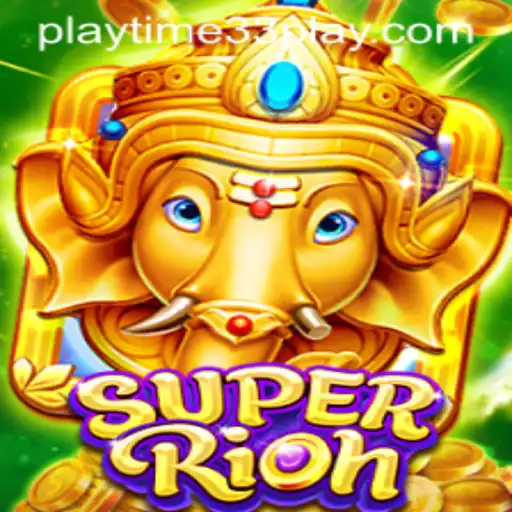
playtime33 - The Evolution of Sports and the Role of Playtime33
Explore the dynamic world of sports and the impact of playtime33 on modern athletic activities.

The Evolution of Sports and the Role of Playtime33
Sports have been an integral part of human culture for centuries. From ancient civilizations to modern societies, the fundamental principles of competition, skill, and teamwork have continuously evolved. In this evolving landscape, a new concept, playtime33, has emerged, transforming how we perceive and engage with athletic activities.
Understanding Playtime33 in Modern Sports
The term playtime33 might be unfamiliar to many, yet it encapsulates a significant trend in today's sports culture. At its core, playtime33 refers to the emphasis on recreational and leisure-based aspects of sports, highlighting the joys and spontaneous nature of athletic engagement. This approach reinvents traditional views, allowing for a broader audience to connect with sports activities beyond mere competition.
The Historical Perspective
Historically, sports have been linked with structured competitions and rigid frameworks. The Olympic Games of ancient Greece, for example, were not just athletic events but also cultural phenomena that demanded strict adherence to established norms. Similarly, medieval tournaments and early modern sports leagues accentuated organized play with emphasis on winning and hierarchical standings.
As societies evolved, so did the nature of sports, adapting to new cultural and technological advancements. The 20th century, in particular, saw massive shifts with the rise of television broadcasting and international sports federations, further solidifying sports as global spectacles.
Emergence of Recreational Sports
With increasing urbanization and the fast pace of modern life, the 21st century ushered in a longing for flexible and enjoyable forms of physical activity. This is where playtime33 comes into play. It prioritizes the fun and collective experiences of playing sports without the pressures of intense competition or professional commitments.
Recreational sports leagues, social media challenges, and local community games are manifestations of this trend. Participants engage for the sheer joy of movement, social interaction, and personal satisfaction. The concept of playtime33 offers an inclusive platform where people of diverse skills and backgrounds can connect over a shared love for sports.
Technology's Influence
In recent years, technology has played a pivotal role in the expansion and acceptance of playtime33. Digital platforms and mobile applications allow individuals to track their recreational play, set personalized goals, and share their achievements. These tools contribute to a broader recognition of sports as an essential aspect of a balanced lifestyle.
Virtual reality and augmented reality technologies also complement the playtime33 ethos by providing immersive experiences that blur the lines between physical and interactive play. This integration enhances accessibility, enabling a wider audience to participate and enjoy sports activities, regardless of physical location.
Impact on Youth and Community
The rise of playtime33 has notable implications for youth and community development. Unlike traditional sports that often emphasize high-stakes competition from a young age, playtime33 encourages exploration and learning through play. This focus nurtures a healthier attitude toward sports, prioritizing wellness and enjoyment over achievement.
Community-driven initiatives are increasingly incorporating playtime33 into their programs, recognizing the potential for fostering inclusivity and social cohesion. By creating environments where individuals can engage freely, communities can cultivate positive relationships and nurture lifelong sports enthusiasts.
The Future of Sports with Playtime33
As sports continue to evolve, the integration of playtime33 is likely to expand, reshaping perceptions of athletic involvement. Its principles align with broader societal trends prioritizing mental health, work-life balance, and general wellbeing. By valuing the playful aspects of sports, we not only enrich individual experiences but also contribute to a more inclusive and accessible sporting culture.
In conclusion, playtime33 represents a transformative approach to our engagement with sports. Whether participating in local leagues, exploring new technologies, or simply playing for joy, the emphasis on leisure and recreation offers a refreshing departure from the conventional sports framework. Embracing this paradigm shift can lead to a healthier, happier, and more connected global community.


GOLD VIP
Minimum deposit: ₱1,500
- ✅ 150% bonus on all deposits
- ✅ Priority withdrawal in 1 minute
- ✅ 10% cashback weekly
- ✅ VIP support 24/7
- ✅ Higher betting limits
PLATINUM VIP
Minimum deposit: ₱6,000
- ✅ 200% bonus + all Gold benefits
- ✅ Instant withdrawal 24/7
- ✅ 15% cashback weekly
- ✅ Exclusive VIP table in casino
- ✅ Special event invitations
DIAMOND VIP
Minimum deposit: ₱30,000
- ✅ 300% bonus + all previous benefits
- ✅ Dedicated personal manager
- ✅ 20% cashback weekly
- ✅ Unlimited withdrawal limits
- ✅ Exclusive trips and gifts
🚀 Register NOW and Get ₱15,000 Bonus!
⏰ LIMITED TIME OFFER! Join over 1.2 million players who have already discovered why playtime33 is the #1 betting platform in the Philippines. Registration in 30 seconds, first withdrawal in 2 minutes!
💬 What our players say
"Best platform I've ever used! GCash withdrawal in 2 minutes, amazing support!"
- Carlos M., Manila ⭐⭐⭐⭐⭐
"Won ₱45,000 on Gates of Olympus! They paid everything correctly via GCash."
- Ana L., Cebu ⭐⭐⭐⭐⭐
"VIP system is amazing! I have a personal manager and cashback every week."
- Roberto S., Davao ⭐⭐⭐⭐⭐
PAGCOR License
SSL 256-bit
eCOGRA
BSP Approved





